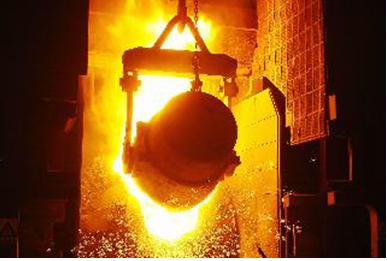Aug . 13, 2024 15:36 Back to list
China's Growing Demand for Vermiculite and Its Impact on Global Supply Chains and Markets
China’s Growing Demand for Vermiculite Trends and Implications
In recent years, China has emerged as a significant player in the global vermiculite market. This naturally occurring mineral, known for its unique properties and versatility, has garnered attention across various industries, prompting an increase in domestic production and international trade.
What is Vermiculite?
Vermiculite is a hydrated laminar magnesium-iron-aluminum-silicate mineral that undergoes significant expansion when heated, producing a lightweight and odorless material. Its expanded form is commonly used in a myriad of applications, including horticulture, construction, insulation, and as a fireproofing agent. The mineral’s ability to retain moisture while providing aeration makes it particularly valuable in agriculture for promoting healthy plant growth.
The Surge in Demand
China’s insatiable appetite for vermiculite can be attributed to several factors. First and foremost is the rapid growth of the construction sector. As urbanization continues to accelerate, there is a burgeoning need for construction materials that are not only cost-effective but also environmentally friendly. Vermiculite fits the bill perfectly, as it is made from natural resources and offers excellent insulation properties, making buildings more energy-efficient.
Additionally, the agricultural landscape in China is witnessing transformative changes. With the country focusing on food security and sustainable farming practices, vermiculite is increasingly being used in potting soils and other growing mediums. Its excellent water-retention capabilities are essential for enhancing crop yields and promoting sustainable agriculture, particularly in arid regions.
Economic Implications
china buying vermiculite

The increased demand for vermiculite has significant economic implications for both domestic producers and international suppliers. For local producers, the rise in demand has led to investment in mining and processing facilities, aiming to enhance production capacity and efficiency. This not only generates employment opportunities but also boosts the local economies where these operations are based.
On a global scale, China’s importation of vermiculite has intensified competition among international vendors. Countries such as Brazil, the United States, and South Africa have positioned themselves as key exporters of vermiculite, resulting in price fluctuations and strategic shifts in trade policies. As suppliers vie for a larger share of the Chinese market, innovations in mining and processing techniques are likely to emerge, enhancing product quality and sustainability.
Environmental Considerations
While the growth of the vermiculite market presents numerous opportunities, it also raises environmental concerns. The mining of vermiculite can lead to habitat destruction, soil erosion, and other ecological issues if not managed responsibly. Thus, it is essential for China and other countries involved in vermiculite production to implement sustainable mining practices that minimize environmental impact.
Furthermore, as consumers become more environmentally conscious, there is a growing demand for ethically sourced materials. This trend could encourage greater transparency in the supply chain and the implementation of more stringent regulations across the industry.
Conclusion
China's increasing appetite for vermiculite reflects not only its economic growth but also a shift towards sustainable and efficient practices in construction and agriculture. As the market continues to evolve, stakeholders must navigate the balance between meeting demand and addressing environmental concerns. With strategic investments and responsible management, the future of vermiculite in China seems promising, transforming it into a cornerstone of sustainable industrial practices and contributing significantly to the country's economic landscape.
-
High-Quality Fe-C Alloy Leading Manufacturers & Spherical Alloy Materials Supplier
NewsJun.10,2025
-
Premium Low Nitrogen Recarburiser Supplier & Manufacturer – High Quality Exporters
NewsJun.10,2025
-
DT4 High-Quality Magnetic Materials Leading DT4 Manufacturer & Supplier
NewsJun.10,2025
-
High-Performance Spring Steel Suppliers Custom Solutions
NewsJun.10,2025
-
Premium SWRCH6A Manufacturer Steel Wire Supplier & Factory
NewsJun.10,2025
-
Premium Mild Steel Wire Rod Supplier & Manufacturer
NewsJun.10,2025
